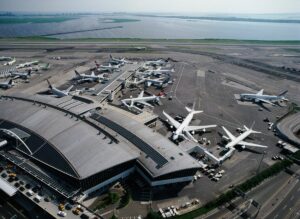As industry leaders in Saskatchewan are weighing up the federal government’s budget, they say many boxes are checked while others are left empty.
Agriculture producers in the province say they are pleased with the budget’s focus on the farming industry, especially in local infrastructure investments.
But the president of the Agricultural Producers Association of Saskatchewan (APAS) says it is more focused on long-term investments and does not do enough to address current issues the industry is facing, such as the Chinese tariffs on canola and yellow peas.
“As producers, we’re not necessarily looking for a cash hand out from the government. We’re looking for some concrete avenues to get these tariffs gone so we can resume normal trade,” said Bill Prybylski.
“That’s what we need, that’s what we’re looking for.”
A new 30 per cent levy was placed by India on Canadian yellow pea producers beginning Nov. 1, adding to China’s 100 per cent yellow pea tariff imposed in March.

Get daily National news
Get the day’s top news, political, economic, and current affairs headlines, delivered to your inbox once a day.
China’s tariffs were seen in retaliation for Canada’s introduction of tariffs on Chinese electric vehicles, while India says the tariffs are to curb cheaper imports of yellow peas to support domestic farmers.
Prybylski says the peas, lentils and bean industry — also known as pulse — has been hit hard this past year, with pea prices declining by about 30 to 40 per cent this year.
“We’re concerned about the pulse industry in Saskatchewan,” said Prybylski, adding he had hoped to see more protections for the industry in the budget.
Over on the mining side, the president of Saskatchewan’s mining association says there are a number of positives with the budget, such as its nuclear commitments, tax credits and the new critical minerals sovereign fund for government investments in projects.
But Pam Schwann says she wants to see how industrial carbon pricing will shape up in the future.
“One of the really big questions that we have that we are going to still need to see clarity on is the whole climate competitiveness strategy,” Schwann said, adding that knowing what the industrial carbon pricing is will help the mining industry remain competitive on a global scale.
Schwann says she also wants to see project assessments as a provincial-only responsibility to move projects forward more efficiently, rather than the current requirements where projects need provincial and federal approval.
“We’re not looking for shortcuts in the regulatory system, we’re just looking for a more efficient system that could done and that was committed to being done and there’s not a lot of mention in this budget,” said Schwann, adding that project approval wait times could be cut from 15 years to three.
Speaking to reporters Wednesday, NDP Leader Carla Beck says the budget’s investment in trade infrastructure is notable and is pushing for urgency in developing these projects.
“We’re at a critical moment and getting this infrastructure built, it’s good to have the announcement, now we need to focus on actually getting it built,” she said.
Saskatchewan finance minister Jim Reiter said to reports Wednesday he would like to have seen a larger infrastructure program and hopes to engage federal officials in the next few weeks.
© 2025 Global News, a division of Corus Entertainment Inc.
Read the full article here














